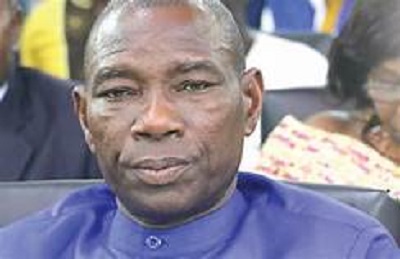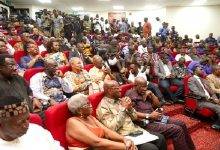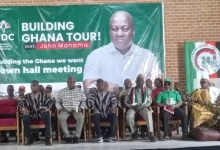‘Discriminatory interventions will encourage women participation in district level elections’

Kwakye Dafuor, the Eastern Regional Minister, has suggested to policy makers to put in place deliberate discriminatory interventions to create the enabling environment to encourage more women participation in the district level elections.
“I will urge stakeholders as well as political parties and the government to put in place positive discriminatory policies and programmes as well as legislations that will bring the needed social changes to encourage and attract women into local governance,” he stressed.
Mr Dafuor made the suggestion in a speech read on his behalf at a capacity building workshop for female aspirants for the 2020 district assembly elections in the Eastern Region organised by the National Association of Local Government of Ghana [NALAG].
“The huge gender disparity remains a conundrum for inclusive governance but I believe the free senior high school policy will partly help change the narrative, I encourage our young women to take advantage of the policy and enroll in their numbers to achieve the requisite knowledge and skills in future to contest local level elections so as to increase women participation in future district level elections,” he pointed out.
Evelyn Boateng, the Second National Vice Chairperson of NALAG, said the amendment of the Local Government Act which comes with election of Metropolitan, Municipal and District Chief Executives (MMDCEs) had abolished the quota for government appointees which gave presidents power to appoint some members to the assemblies, it was important to encourage all those women appointees as well as others with intent to contest the elections.
“It is time for women to break the patriarchy and male dominance of the socio-political system with the overall goal of the workshop to build capacity of women aspirants to maximise their winning chances to increase women participation in local governance,” she indicated.
Available statistics indicate that since 1994 the participation of women in local governance has been less than 10 per cent at the national level in spite of women constituting 51per cent of the nation’s population.
Currently, out of the 9000 assembly members nationwide, only 645 are females representing 7.1per cent, out of the 260 presiding members, only eight are females representing 3 per cent, out of the 260 MMDCEs, only 40 are females representing 15 per cent and out of the 275 parliamentarians, only 36 are women which represent 13 per cent. -starrfmonline.com







